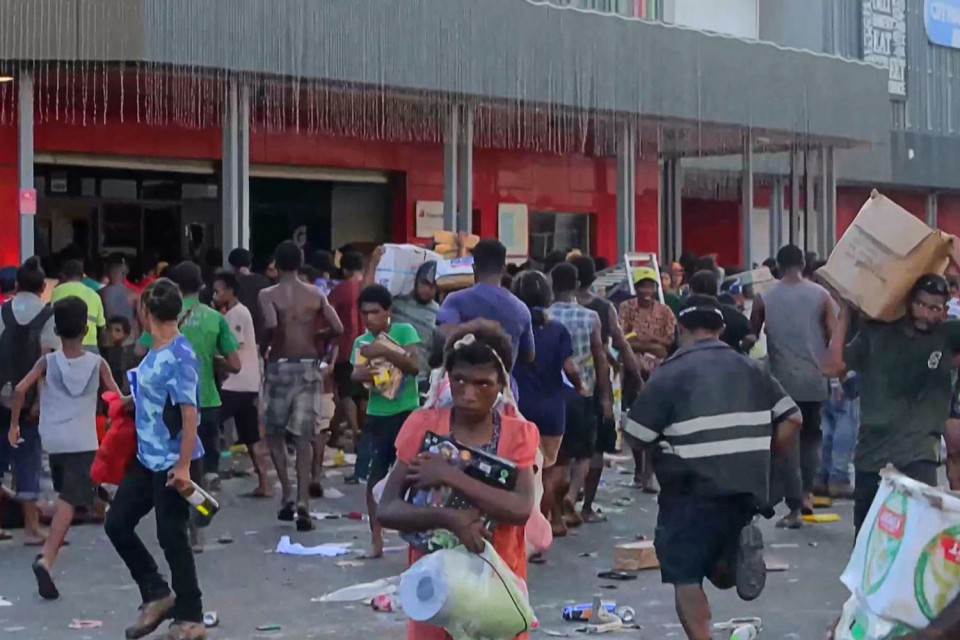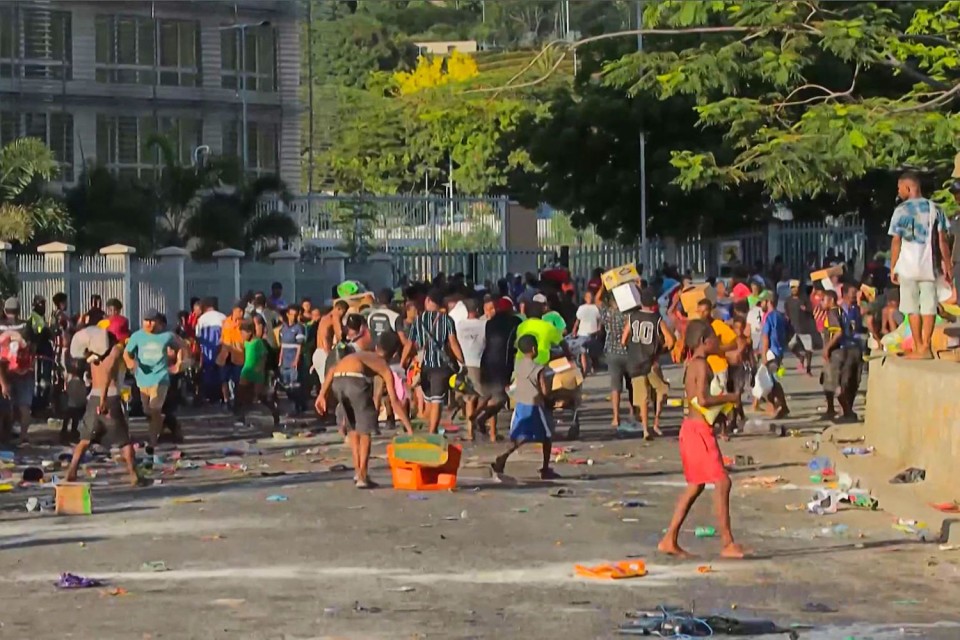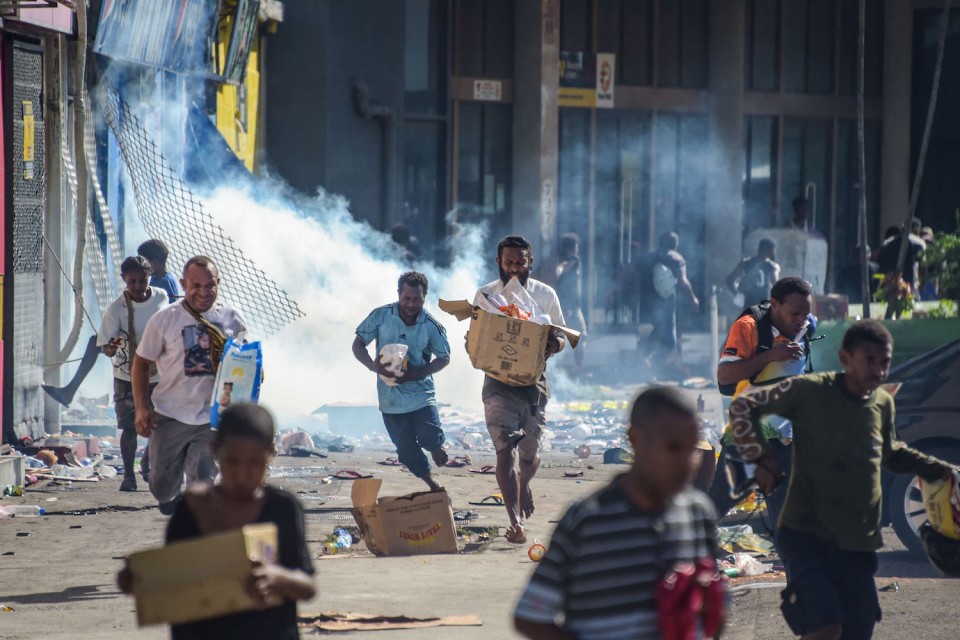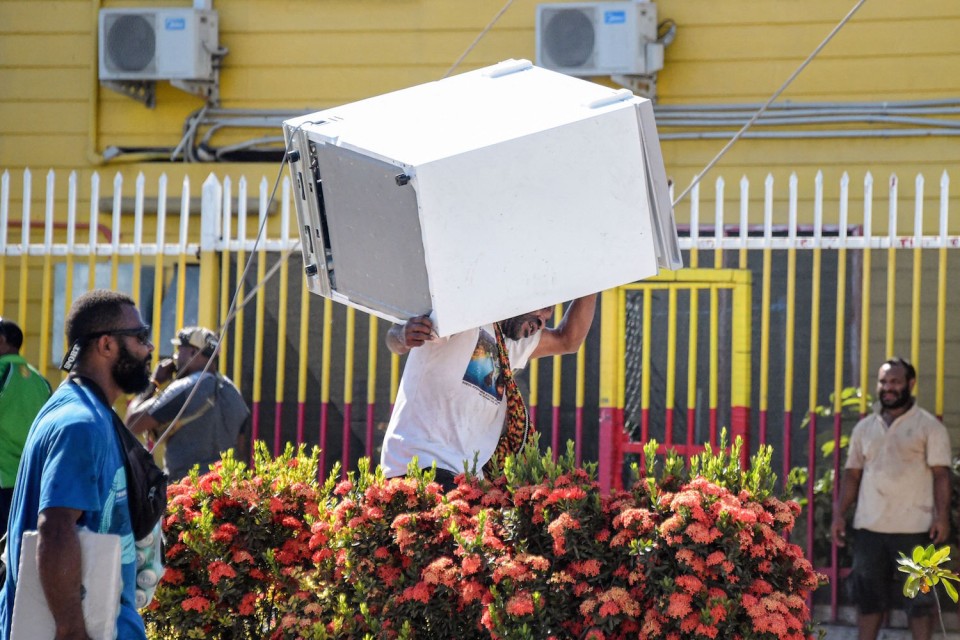
PORT MORESBY, Jan 11, 2024 (AFP) – Papua New Guinea’s prime minister pledged to crack down on “lawlessness” Thursday, following riots in which 15 people were killed as angry crowds torched buildings and ransacked shops.
Violence erupted in the capital Port Moresby on Wednesday evening after a group of soldiers, police officers and prison guards launched protests against the government.
Within hours riots had also taken root in the city of Lae, some 300 kilometres (186 miles) to the north.
Prime Minister James Marape on Thursday apologised to the country, saying the bursts of “lawlessness” would “not be tolerated”.
“I want to speak today, speak to the people and speak to the country,” he said at a press conference.
“This is your country as much as it’s my country. Breaking the law does not achieve certain outcomes.”
Police Commissioner David Manning confirmed at least 15 people were killed during the outbreak of civil unrest.
Port Moresby’s largest hospital treated 25 people with gunshot wounds, according to figures provided to AFP, as well as six people with “bush knife” lacerations.
AFPTV footage showed looters in the capital dashing into stores through smashed glass windows, stuffing stolen goods into cardboard boxes, shopping trolleys and plastic buckets.
One man was seen lugging an entire chest freezer away on his shoulders.
Buildings and cars were set alight, AFPTV footage showed, stirring up thick plumes of black smoke that hung over the worst-hit parts of the city.
The US Embassy in Port Moresby said shots were fired near its compound as police tried to “disperse groups of looters”.
Earlier, a smaller crowd gathered outside the prime minister’s office in Port Moresby, tearing a security gate off its rails and torching a parked police car.
Beijing has lodged a complaint with Papua New Guinea’s government, following reports that rioters targeted Chinese-owned businesses.
Port Moresby resident Maho Laveil, an economics lecturer at the University of Papua New Guinea, said peace had “largely been restored” by Thursday evening.
“They’ve chased the looters away, they’ve stopped the buildings from burning,” he told AFP.



– ‘End this strife’ –
National Capital District governor Powes Parkop said the unrest represented an “unprecedented level of strife” in Port Moresby, while local newspaper the Post Courier called it the city’s “darkest day”.
“What is most important is that we must end this strife,” Parkop told a local radio station Wednesday evening.
“Nobody will be a winner in this type of civil unrest.”
Security forces staged a protest inside Papua New Guinea’s parliament after noticing their pay had been docked without explanation.
Although the government swiftly promised to fix what it described as a payroll “glitch”, it was not enough to stop disgruntled civilians from joining the fray.
The burst of violence highlights the often volatile nature of life in Papua New Guinea, a country plagued by poverty and high levels of crime.
“You’ve got this growing resentment, particularly in the capital city, where inequality is very high,” said Laveil.
Perched less than 200 kilometres (125 miles) from Australia’s northernmost border, Papua New Guinea is the largest and most populous state in Melanesia.
Although it is blessed with vast deposits of gas, gold, and minerals, human rights groups estimate that almost 40 percent of its nine million citizens still live below the poverty line.
Australia recently inked a security deal with Papua New Guinea, promising to help its stretched police force combat arms trafficking, drug smuggling and tribal violence.
“We continue to urge calm at this difficult time,” Australian Prime Minister Anthony Albanese told reporters on Thursday.







